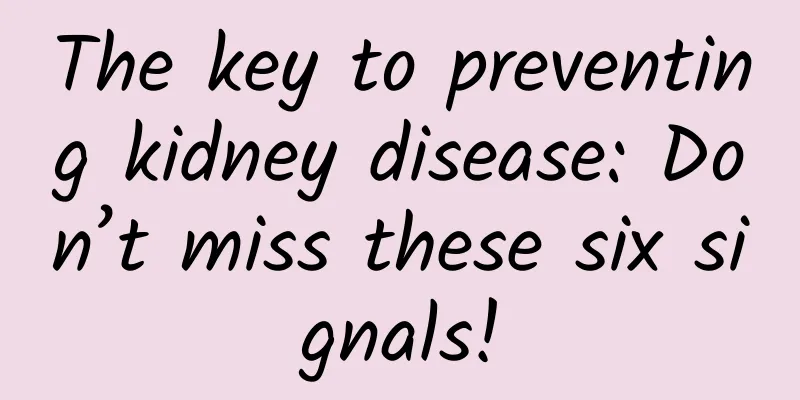The key to preventing kidney disease: Don’t miss these six signals!

|
1. Lack of energy and poor appetite. When kidney function is poor, many waste products are difficult to excrete from the urine, resulting in a lack of energy, fatigue, weakness and other symptoms. Some patients think that it is due to overwork or other reasons, thus ignoring kidney problems. In addition, kidney disease patients often have many digestive tract symptoms, especially due to gastrointestinal edema, often have digestive dysfunction such as loss of appetite and abdominal distension. 2. Nausea and vomiting. When diabetic patients develop renal failure, the urea nitrogen in the blood increases, and the urease of the intestinal bacteria will decompose urea into ammonia, which will irritate the gastrointestinal mucosa and cause nausea and vomiting. In addition, the kidney's ability to concentrate urine is weakened at this time, which will increase the patient's nocturnal urine volume. The body's water will be lost in large quantities at night, the blood will be concentrated, and the blood urea ammonia level will be relatively high in the morning. Therefore, nausea and vomiting are likely to worsen in the morning. 3. Foamy urine and abnormal urine output. There are many reasons for foamy urine, and kidney disease can also cause this phenomenon. If protein leaks from the kidneys into the urine, the urine will have a lot of foam. 4. Urine protein, occult blood in urine and urinary tract infection. The presence of protein or occult blood in urine is an important indicator of kidney disease, which can be detected by urine routine. However, sometimes doctors who are not specialized in nephrology may ignore this, so it is best for patients to seek medical advice from nephrology doctors. In addition, people who often have urinary tract infections may also develop renal insufficiency over time. 5. Anemia. In addition to excreting waste, the kidneys also secrete hematopoietic hormones. Anemia is also an important signal of kidney damage. 6. Hypertension, gout and hyperuricemia. Hypertension can cause hypertensive nephropathy, also known as hypertensive renal damage, so people with hypertension need to pay more attention. Of course, kidney disease can also cause hypertension. In addition, gout and hyperuricemia are both caused by excessive uric acid in the blood. People with high uric acid in the blood will have uric acid deposited in the kidneys, which will also damage kidney function. |
<<: Why do you need to warm up before exercising?
>>: These four bad habits can really harm your kidneys!
Recommend
What face wash can effectively treat acne?
Acne has always been a very distressing problem f...
What does it mean when your girlfriend says you are stupid? How do you respond when your girlfriend says you are stupid?
Girls are creatures with complicated thoughts. Th...
What should I do if the fetus is in an abnormal position at eight months of pregnancy?
Many female friends will find that the fetus is i...
Can premature ovarian failure recover on its own?
Premature ovarian failure is probably a common co...
Seven months pregnant, hard belly when walking
Pregnancy is both a happy and painful thing for a...
Can I take X-rays during breastfeeding?
A woman's physical health is crucial during b...
What should you eat if you have high blood pressure? Save these 4 suggestions
Hypertension has become one of the most common ch...
Can I have sex when I am five months pregnant?
Can I have sex when I am five months pregnant? Th...
Can women eat American ginseng?
American ginseng is the preferred choice of many ...
Monkeypox (Mpox): Identification and Prevention
Deep in the jungles of Africa, a silent battle is...
I have a slight pain in my stomach at 5 months pregnant
Women should not relax in any aspect during every...
Why does it still itch when the cleanliness level is 2?
If women want to know whether they have vaginitis...
Women must read: Bilateral ovarian polycystic changes are very harmful
Bilateral polycystic ovaries are a type of ovaria...
What is the normal progesterone level at 8 weeks?
Different changes will occur in the body at diffe...
What causes ovarian cysts?
What are the causes of ovarian cysts? If there is...









